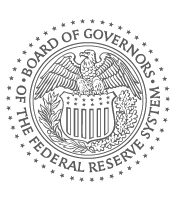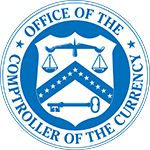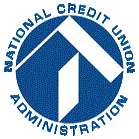The Consumerist 101 Guide To Understanding Your Financial Regulators
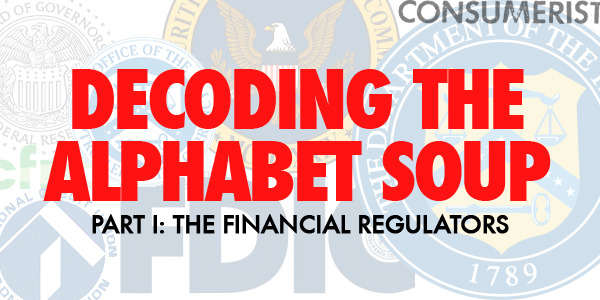 Washington, D.C., might as well be called Acronym City. It feels like there are a zillion different, discrete agencies, organizations, bureaus, boards, and commissions within the federal government, each with its own graceless three-, four-, or five-initial moniker, forming the tangled web of a bureaucracy that regulates… well, almost everything. So what are the key regulatory agencies, anyway? Who oversees what, and who do they report to, and how does it all work?
Washington, D.C., might as well be called Acronym City. It feels like there are a zillion different, discrete agencies, organizations, bureaus, boards, and commissions within the federal government, each with its own graceless three-, four-, or five-initial moniker, forming the tangled web of a bureaucracy that regulates… well, almost everything. So what are the key regulatory agencies, anyway? Who oversees what, and who do they report to, and how does it all work?
For our first installment in a series on how to understand your regulators, we thought we’d begin with the agencies and departments that regulate and oversee everyone’s favorite thing: money.
Also called: The Fed, The Federal Reserve
Area of focus: Banking and the economy
Specifically responsible for: Four major areas of focus:
- Creating and enacting monetary policy
- Maintaining the stability of the entire financial system
- Regulating and supervising banking institutions
- Acting as a central bank providing financial services to banks and the government
The Federal Reserve was created in response to bank and financial panics, and expanded in response to crises like the Great Depression. The Federal Reserve Act lays out a mandate for the Fed that their policies should meet the goals of maximum employment, stable prices, and moderate long-term interest rates. The Fed also performs and publishes an enormous amount of economic research.
What they DON’T do: Create and print money (Treasury); regulate stock markets (SEC); get into the nitty-gritty of bank regulation (OCC)
Falls under / reports to: The Federal Reserve is an independent agency, meaning it’s separate from all of the executive (cabinet-level) departments. It is subject to oversight and potential alteration (changes in scope, mission, and so on) from Congress.
Leadership: Officially, what we think of as the Federal Reserve is “The Board of Governors of the Federal Reserve System.” The current Chair of that board is Janet Yellen, who just took over the position in February. Ben Bernanke held the position prior to Yellen. The Chair and the other members of the Board are appointed by the President and approved by the Senate.
Parent agency of: The CFPB
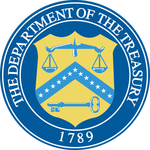 The Department of the Treasury
The Department of the Treasury
Also called: Treasury
Area of focus: Currency, government cash flow
Specifically responsible for: The Treasury, at its most basic level, manages money that comes into or goes out of the federal government. Their major areas of focus are:
- Collecting money paid to the government, including taxes and duties
- Creating currency and coinage
- Managing federal finances, government accounts, and the public debt
- Advising on “domestic and international financial, monetary, economic, trade and tax policy”
- Enforcing finance and tax laws, including investigating and prosecuting tax evaders and counterfeiters
What they DON’T do: Regulate banks (Federal Reserve); regulate stock markets (SEC)
Falls under / reports to: The Department of the Treasury is an executive department; it reports to the President.
Leadership: The Treasury is headed by the Secretary of the Treasury, a Cabinet-level position. The current Secretary is Jack (Jacob) Lew, who took over the job in 2013.
Parent agency of: Many offices and bureaus, but key ones include the IRS, the OCC, and the Mint.
Office of the Comptroller of the Currency
Also called: OCC
Area of focus: Banks
Specifically responsible for: The OCC charters, regulates, and supervises banks to “ensure that they operate in a safe and sound manner and in compliance with laws requiring fair treatment of their customers.” Specifically, their areas of activity are:
- Approving or denying applications for new banking charters, branches, or “other changes in corporate or banking structure”
- Enforcing relevant laws and regulations by taking “supervisory actions” against banks that don’t comply with them. Those actions can include removing a bank’s officers or directors, negotiating agreements with a bank for it to change practices, and issuing cease and desist orders along with fines.
- Issuing rules and regulations relating to “investments, lending, and other practices.”
What they DON’T do: Set banking policy (Federal Reserve); make currency (Treasury); regulate stock markets (SEC); help some certain consumer complaints related to financial products (CFPB).
The jurisdictional split between the OCC and the CFPB for consumer complaints has to do with (1) the type of complaint (if it falls under “certain consumer protection laws”) and (2) the size of the bank being complained about. The big ones go to the CFPB.
Falls under / reports to: The OCC’s parent agency is the Department of the Treasury.
Leadership: The OCC is headed by the Comptroller of the Currency, a position nominated by the President and approved by the Senate. Current Comptroller Thomas Curry was sworn in to his term in 2012.
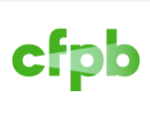 Consumer Financial Protection Bureau
Consumer Financial Protection Bureau
Also called: CFPB
Area of focus: Financial protection for consumers
Specifically responsible for: The CFPB was created in 2011 in response to the economic crisis that kicked off in 2007-2008. Its mandate is to educate consumers, to enforce existing federal laws relating to consumer finance, and to do a whole lot of research related to those issues. As compared to many other government agencies, they are a very end-user-facing, consumer-friendly organization more likely to use plain language. Their core role is to:
- Enforce federal consumer financial protection and anti-discrimination laws
- Restrict unfair, deceptive, or abusive acts or practices
- Research consumer behavior, accept consumer complaints and promote financial education
- Write rules and regulations that companies have to work within
What they DON’T do: Regulate banks (OCC); regulate stock markets (SEC)
Falls under / reports to: The CFPB’s parent agency is the Federal Reserve.
Leadership: The CFPB is run by a director, appointed by the President and confirmed by the Senate. Richard Cordray assumed the office in 2012.
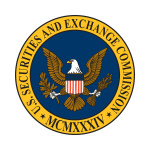 Securities and Exchange Commission
Securities and Exchange Commission
Also called: SEC
Area of focus: Stocks, stock markets, publicly traded companies
Specifically responsible for: The SEC interprets and enforces laws relating to securities, brokers, corporate finance, and pretty much all related areas. Their core functions are to:
- Enforce existing federal securities laws
- Issue and amend relevant rules
- Oversee “the inspection of” securities firms, investment advisers, brokers, and ratings agencies, and also to oversee private regulatory organizations in related fields
The SEC operates in five major divisions, each of which oversees a different area:
- Corporation Finance: tracks public companies’ disclosures, mergers, etc
- Trading and Markets: oversees the agencies that register and license brokers and investment houses
- Investment Management: oversees investment advisors and mutual fund companies
- Enforcement: enforces relevant law through investigations and civil actions
- Economic and Risk Analysis: does all the research for rule- and law-making, and analysis of current and potential future risks in the market
What they DON’T do: issue monetary policy or set interest rates (Federal Reserve)
Falls under / reports to: The SEC is an independent agency, meaning it’s separate from all of the executive (cabinet-level) departments. It is subject to oversight and potential alteration (changes in scope, mission, and so on) from Congress.
Leadership: The SEC is run by a five-member commission headed by a chair. The current Chair, Mary Jo White, began her term in 2013. Other commissioners are Luis Aguilar, Daniel Gallagher, Kara Stein, and Michael Piwowar. Commissioners are appointed by the President and approved by the Senate. No more than three of the five commissioners may belong to the same political party.
 Federal Deposit Insurance Corporation
Federal Deposit Insurance Corporation
Also called: FDIC
Area of focus: Insuring the money in banks
Specifically responsible for: The FDIC basically exists to guarantee that if a bank closes, the customers who deposited their cash into that bank don’t go broke. Its core areas of responsibility are:
- Insuring deposits
- Supervising financial institutions for safety, soundness and consumer protection
- Managing receiverships
Deposit accounts at FDIC-backed banks are generally insured to $250,000 — so if your bank announces financial trouble, there’s no need to cause a run on it to get your money back, thus making the situation worse. The FDIC also manages receivership in the event of bank failure.
What they DON’T do: any of the above for credit unions (NCUA); insure investment accounts
Falls under / reports to: The FDIC is an independent agency, meaning it’s separate from all of the executive (cabinet-level) departments. It is subject to oversight and potential alteration (changes in scope, mission, and so on) from Congress.
Leadership: The FDIC is run by a five-member board of directors headed by a chair. The current Chair, Martin Gruenberg, began his tenure in 2012.
Two of the five director positions go to the Comptroller of the Currency and the director of the CFPB, so are currently held by Thomas Curry and Richard Cordray respectively. The remaining two directors are Thomas Hoenig and Jeremiah Norton. Directors are appointed by the President and approved by the Senate. No more than three of the five members of the board of directors may belong to the same political party.
National Credit Union Administration
Also called: NCUA
Area of focus: Credit unions
Specifically responsible for: The NCUA regulates, charters, and insures the deposits in credit unions. While banking regulatory authority is more spread out across agencies, most credit union oversight lies with the NCUA.
What they DON’T do: insure the money in banks (FDIC)
Falls under / reports to: The NCUA is an independent agency, meaning it’s separate from all of the executive (cabinet-level) departments. It is subject to oversight and potential alteration (changes in scope, mission, and so on) from Congress.
Leadership: The NCUA is run by a three-member board of directors headed by a chair. Current Chair Debbie Matz began her six-year term in 2009. The other two members of the board are Michael Fryzel and Rick Metsger. Directors are appointed by the President and approved by the Senate. No more than two of the three members of the board of directors may belong to the same political party.
Want more consumer news? Visit our parent organization, Consumer Reports, for the latest on scams, recalls, and other consumer issues.


